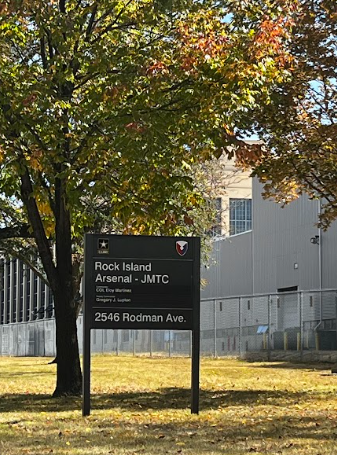Following the results of the 2024 election, the U.S. Department of Education is at risk of elimination with the approaching presidency of Donald Trump.
Trump announced on the campaign trail that he plans to close the Department of Education and shift responsibility back to the states. Trump believes it could allow some states to do a better job at education than the federal government.
Removing the U.S. Department of Education brings concerns about how Strath Haven’s and other schools’ day-to-day operations could be negatively impacted.
The United States Department of Education (DOE) was founded under President Jimmy Carter on Oct. 17, 1979. Each state also has its state education department that controls many factors inside schools and oversees public school systems.
Congress would have to approve the bill with a majority vote to eliminate the DOE at a federal level. This means that 213 of the 435 people in Congress would have to endorse this change. Due to the need for congressional approval, some doubt the bill will be approved soon.
“Getting Congress to agree on anything is near impossible these days. I’ve got some skepticism,” social studies teacher Mr. Patrick Clancy said.
If Trump does not get congressional approval, there are other ways he can impact and possibly limit the influence that the DOE has on schools.
“I don’t know if it’s going to be a reality in terms of dismantling it,” Interim Superintendent Dr. James Scanlon said. “Now, he can certainly appoint people to work in the DOE, and those people can have an influence on policy.”
So what exactly would happen if the DOE were to be abolished or had its budget cut?
One of the DOE’s main roles is allocating funding to public schools. From a local standpoint, Strath Haven will not be significantly impacted regarding funding.
Only 1.4% of the Wallingford-Swarthmore School District’s budget comes from the federal government. That’s about $1.4 million out of a $102 million budget. In less wealthy areas, schools could face a large impact depending on how the government would choose to move forward with federal funding.
“I really worry that in an impoverished area, if you get rid of some type of governing body, that could have some type of impact in a way,” history teacher Mr. Tom Babcock said.
One of the major concerns of eliminating the DOE is what would happen to schools that accommodate large numbers of low-income families, currently protected by Title I. Title I is a federal program that provides additional funding to school systems with a large percentage of low-income families.
Currently, over half of American public schools nationwide qualify for Title I funding. Wallingford-Swarthmore School District gets $140,000 from Title I funding, so removing Title I funding wouldn’t make a huge financial difference on Haven. With the removal of the DOE, underfunded public schools could be left with insufficient financial resources depending on what happens to Title I funding.
Without these additional resources, children from low-income families could receive an inadequate education, special learning services, financial aid, and other resources that could be significantly underfunded or outright eliminated, depending on the school. Historically, low-income areas are home to many minority students, which could create racial inequity in terms of quality of education.
“Typically, you see with more low-income families, a higher ratio of black and brown students [in Title 1 schools]. So there would be some indirect effect for some of those places if the funding wasn’t reallocated elsewhere,” Scanlon said.
Along with the possibility of negatively impacting students from impoverished areas, removing the DOE could harm other minority group students.
“Students with special education needs, a lot of that comes from federal guidance as well. What changes in terms of interpretations of the Individuals with Disabilities Education Act could occur?” Clancy said.
Students placed in special education programs could see changes in their daily school lives. The Individuals with Disabilities Education Act (IDEA) is a law currently enforced by the DOE.
If the DOE were to be eliminated, IDEA would remain on the books even if the DOE ends. It’s not clear where the responsibilities of enforcement or funding would end up.
“One thing I’m concerned about is that the Department of Education does provide a certain oversight. It acts as a sort of unifying agency in providing standards and other guidelines,” history teacher Ms. Xaras Collins said.
The DOE also investigates civil rights violations. Many marginalized groups, such as minorities, women, people with disabilities, and those who are part of the LGBTQ+ community, often fall victim to civil rights violations. With eliminating the DOE, it is unclear what will happen to these violations.
Could the Department of Justice significantly change how civil rights investigations are carried out? Maybe not, but it is putting historically marginalized groups at higher risk of being treated unfairly.
“A lot of people hear civil rights and they automatically think about race, but a lot of the work of that legislation is more about disability, gender equity, and those sorts of things,” Collins said.
The DOE currently provides resources for LGBTQ+ students, including protections for transgender students under Title IX. Trump has pledged to eliminate those Title IX protections enacted during the Biden administration With potential elimination, it could be left up to states to make their own decisions about LGBTQ+ resources in school.
“I look at my students that are transgender or questioning,” Collins said. “I see the immediate fear in their eyes and sitting there like, ‘I didn’t do anything to anybody.’”
As for the school curriculum itself, presumably, not too much would change drastically. The school curriculum is already heavily produced by the states themselves. The DOE does not create a school curriculum, but it does regulate the curriculum by contributing to education research. This ensures the same quality of education across the country. Without this federal safeguard, states would have slightly more flexibility in their individual curriculum.
“I think of Alabama or Mississippi who, even in the 1960s, were fighting for segregation,” Babcock said. “I worry that without a federal agency, you would have more of a chance for a state to remove something and make it an absolute lie.”
This story was originally published on Panther Press on December 17, 2024.


































